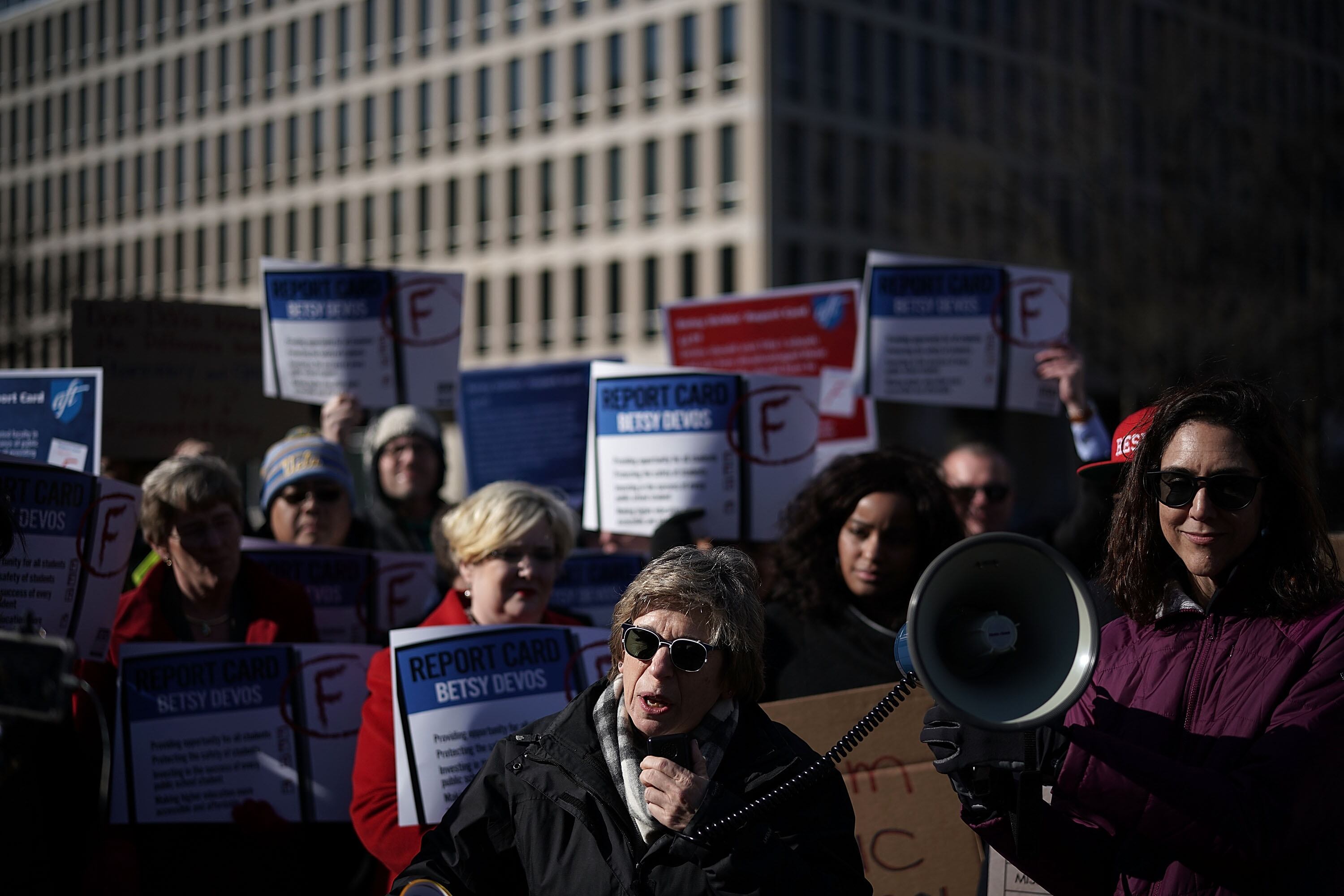Two major education leaders issued an unusually pointed challenge to the federal education department Wednesday, encouraging school districts to flout new federal guidance about the distribution of coronavirus relief to private schools.
“The guidance funnels more money to private schools and undercuts the aid that goes to the students who need it most,” American Federation of Teachers president Randi Weingarten and national school superintendents association executive director Dan Domenech said in a joint statement. “Fortunately, school districts can — and should — ignore this guidance, which flouts what Congress intended to do with the CARES Act.”
A spokesperson for the department reiterated its view that the guidance is consistent with Congressional intent.
At issue is a provision in the CARES Act, which authorized billions in federal relief money for K-12 schools and requires school districts to provide “equitable services” to local private schools.
The question is how much of that relief money should go to services for private schools. The CARES Act says the new federal aid should be distributed in the “same manner” as Title I funding, and under Title I, private schools’ share is determined by the share of low-income students they enroll in a given area.
But in non-binding guidance released last week, the U.S. Department of Education said the calculation should be different — relying not just on the share of low-income students enrolled in private schools, but the share of all students enrolled in private schools.
An attorney previously told Chalkbeat that this interpretation was “creative,” since it appears to clash with a straightforward reading of the law. The department has defended its interpretation by pointing to the fact that relief dollars, unlike Title I money, can be used for all students in a given school or district.
If districts follow the department’s lead, the financial impact could be significant. An analysis by the state of Louisiana found the amount of federal dollars going to support private schools would increase from $8.6 million to $31.5 million.
The department’s interpretation could redistribute resources from public schools serving students from low-income families to private schools, whose students are more likely to be white and higher-income.
This impact — and perhaps the department’s shaky legal footing — may have encouraged Weingarten and Domenech to push districts to ignore the federal interpretation of the law. But it would still be a risky legal move for a district to do so, as a local private school could sue in response.






